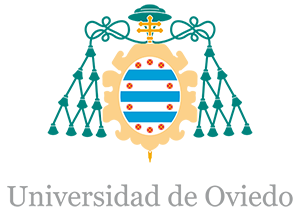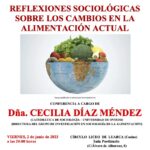Organismo: (S2800568D) MINISTERIO DE ECONOMIA Y COMPETITIVIDAD
- Fecha de Inicio: 01 de Enero de 2013
- Fecha de Fin: 31 de Diciembre de 2015
- Investigador responsable:
- CECILIA DIAZ MENDEZ
Participantes:
- MARIA ISABEL GARCIA ESPEJO
- HANS PETER VAN DEN BROEK
- LAURA CABIEDES MIRAGAYA
- GUADALUPE RAMOS TRUCHERO
- PALOMA HERRERA RACIONERO
- LYDIA MARTENS
- ALAN WARDE
- CRISTOBAL GOMEZ BENITO
Resumen: El objetivo principal de este proyecto es describir, conceptualizar y comprender el modelo alimentario español fuera del hogar y compararlo con el británico. Se espera determinar el significado que españoles y británicos atribuyen a la alimentación extradoméstica, las motivaciones para optar por esta forma de alimentarse, las actitudes y las percepciones que tienen sobre las comidas realizadas fuera del hogar y las rutinas alimentarias en las que se asienta esta conducta.
Nuestra hipótesis de partida es que los comportamientos alimentarios fuera del hogar se construyen en relación directa con los domésticos y forman parte de una misma decisión en términos de gasto, pero también en términos de salud, de relaciones sociales y de obligaciones laborales y familiares. Ambas conductas alimentarias se complementan constituyendo conjuntamente lo que podríamos denominar el modelo alimentario del hogar (domestico y extradoméstico). Para lograr nuestro objetivo realizaremos una primera exploración cualitativa, con entrevistas y grupos de discusión en cinco ciudades españolas seleccionadas por el tamaño poblacional. Continuaremos con un análisis cuantitativo, una encuesta telefónica, en dos ciudades de Reino Unido (Preston y Londres) y dos españolas (Gijón y Madrid).
Summary: The main objective of this project is to describe, conceptualize and understand the Spanish food model outside the home and then compare it with the British model. Our aim is to determine the meaning Britons and Spaniards give to their eating out, the motivations for choosing this way of eating, the attitudes and perceptions they have about the meals taken outside the home and the food routines in which this behavior is based .
Our hypothesis is that eating behaviors outside the home are built up in direct connection with those we have at home, that they are part of the same decision in terms of expenditure, but also in terms of health, social relationships and work and family obligations. Both eating habits complement each other and make up what we might call the home food model (domestic and extra-domestic). To achieve our goal we will carry out a first qualitative approach through interviews and discussion groups in five Spanish cities selected according to their population. Then we will carry out a quantitative analysis, a telephone survey in two cities in the UK (Preston and London) and other two in Spain (Gijón and Madrid).




![Convergence and Divergence in Food in Europe: A Comparative Analysis of Food Disruption in Britain and Spain [MICINN-09–CSO2009–07351]](https://www.unioviedo.es/socialimen/wp-content/plugins/related-posts-by-zemanta/static/thumbs/6.jpg)
![Food outside the home in Europe: a comparative analysis of extra-domestic food models in Spain and the United Kingdom [MINECO-13–CSO2012–31904]](https://www.unioviedo.es/socialimen/wp-content/plugins/related-posts-by-zemanta/static/thumbs/1.jpg)
![Convergence and Divergence in Food in Europe: A Comparative Analysis of Food Disruption in Britain and Spain [MICINN-09–CSO2009–07351]](https://www.unioviedo.es/socialimen/wp-content/plugins/related-posts-by-zemanta/static/thumbs/13.jpg)

